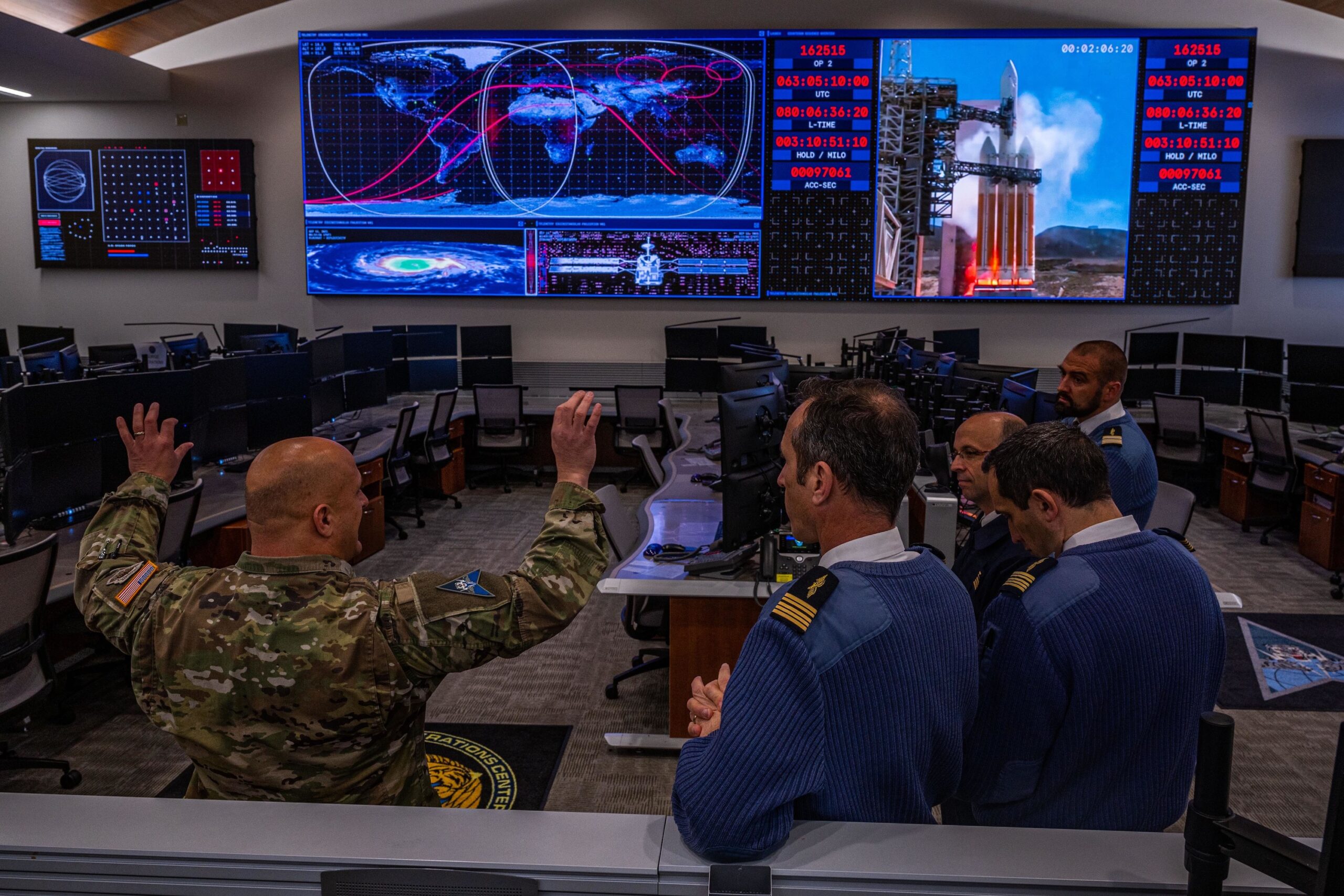
RESTON, Va. — The Office of Space Commerce is working to build out an infrastructure able to handle the demands of tracking tens of thousands of active satellites and debris objects in orbit.
Speaking Nov. 3 at the CyberSatGov conference, OSC Director Richard DalBello said the standup of a civilian space traffic management office is moving along, but cautioned the process will move slower and more incrementally than many expect.
The OSC’s primary job is to advocate for the U.S. space industry and oversee commercial remote-sensing regulations, but most of the office’s efforts are now focused on implementing a 2018 policy directive to provide spaceflight safety services for civil and commercial satellite operators, a job currently performed by the U.S. military.
This will require Commerce to set up a cloud infrastructure, establish data-sharing agreements with DoD, line up contracts for the procurement of commercial data and figure out processes for issuing collision warnings to operators when debris objects approach active satellites.
The departments of Commerce and Defense signed an agreement in September formalizing their commitment to cooperate. DalBello said the memo was just the beginning of a discussion to take place over the next several months to hash out the details.
Not an FAA for space
DalBello said many people believe the Office of Space Commerce will be a de-facto traffic controller, like the Federal Aviation Administration for space. But that is not what’s happening.
“We use all these terms a lot: space situational awareness, space traffic management, space traffic control but in reality all we’re really stuck with is space situational awareness,” he said.
OSC will not manage space traffic but rather provide information that operators can use to help prevent collisions, DalBello said. Once that warning is issued, “all the responsibility transfers to the operator.”
That said, “we clearly are in the beginning of what will be a long, long process” to define what responsibilities should fall on the government and on the private sector with regard to space traffic management, he added. “If you look back at air traffic control, it kind of started in the same way. The first air traffic control centers were organized by the airlines.”
Following the agreement with DoD, two working groups were formed: one focused on clarifying DoD’s and OSC’s roles and responsibilities, and another dealing with the more complicated issue of data sharing.
DalBello insisted that DoD is not getting out of the business. “They’re just shifting the focus. We’re trying to take over civil and commercial, and some international activities. So we need to clarify roles and responsibilities.”
The working groups will meet over the next several months.
OSC will not overnight learn how to do everything that DoD has been doing for decades, he said. And there will not be a “big magic date” when a fully operational civilian system will be turned on and the military system turned off.
A prototype cloud-based data repository unveiled last year was a first step, DalBello said. OSC plans to acquire an operational cloud system but the contracting process is now on hold until Congress appropriates 2023 funding. Separately, the office is working with U.S. Space Command’s commercial operations cell on pilot programs using data from the military’s unified data library. Eventually, he said, “we’ll need a constant source of commercial data.”
Meanwhile, he said, “we’re going to be kicking off processes to buy other commercially available SSA services.”
The transition of services from DoD to OSC perhaps will start with geostationary orbit SSA , then launch collision avoidance, and so on. “Once we have those up and running and stabilized, we can say to the Defense Department, okay, you can stand down on that.”
OSC also is monitoring the progress of Europe’s counterpart, the EU Space Surveillance and Tracking (SST) services.
“The world is not standing still waiting for us to get our act together. Europe is moving out,” said DalBello. “But that raises the question of how do we coordinate all those data sources?”
“I heard that the EU SST is going to be offering their services to third parties as early as next year,” he said. “So we’ll be looking hard at that.”
Related
ncG1vNJzZmiroJawprrEsKpnm5%2BifKS11aKjopmeYsCxrcKeZK2qkZuzqq%2BMppinmZeauqa602amn56ZmLJur86moKefXZa5sLrGZpmurF2ZvK%2FAjJ6vqZ2TqXqurcaimmg%3D